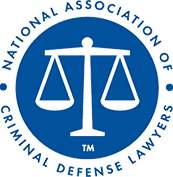
Orange County White Collar Crimes Lawyer
Dedicated Legal Support for White Collar Crime Charges in Southern California & Nationwide
White collar crimes are violations of laws involving theft in some form. The penalties for a white collar crime conviction are serious, so it is advisable to enlist an experienced white collar crime attorney on your side.
White collar crimes are offenses at the state and federal levels. At Law Office of Diane C. Bass, Attorney Diane C. Bass has decades of professional experience and has handled some of the most significant cases in the history of the Central District of California. She can fight aggressively for your side in court while seeking to protect you against harsh and unfair accusations. Putting her in your corner as soon as you are under investigation by law enforcement is vital; this gives our firm the time to thoroughly investigate the situation and begin building a defense strategy.
Schedule a Consultation with Our Orange County White Collar Crime Attorney Today! Call (949) 990-4195 or contact us online.
What Are the Most Common White Collar Crimes?
When it comes to white collar crime allegations, understanding the most common types can be crucial for your defense. As a seasoned white collar crime lawyer in Orange County, Attorney Diane C. Bass is well-equipped to provide guidance on a variety of these offenses. Below, we delve into some of the most frequently encountered white collar crimes, offering insights that could be pivotal in forming your defense strategy.
Often evolving with technology and changing economic landscapes, these crimes demand a comprehensive understanding and a proactive approach. For example, the advent of digital currency has introduced new complexities in financial frauds. Attorney Bass stays abreast of these developments, ensuring her strategies are both current and effective, particularly when it involves navigation through intricate legal and financial frameworks.
What Is Securities Fraud?
Securities fraud crimes involve deceptive or fraudulent activities in the stock or commodities markets. The term “securities” broadly encompasses all types of investments, such as municipal bonds, corporate stocks, banknotes, and investment contracts.
Securities fraud usually occurs when someone involved with one of these investments (e.g., professional financial analyst, securities broker, corporation) lies, cheats, or steals to gain an economic advantage. Securities fraud is typically perpetrated through schemes inducing others to willingly invest money or something else of value. A person can commit securities fraud even if they never actually profit from the activity; if they engage in fraud with the intent to profit, that is enough to be accused of the crime.
A conviction for securities fraud can lead to significant civil or criminal penalties. A convicted individual could face fines as high as $5,000,000, while other circumstances could warrant $10,000 or more. A conviction can also result in a five-year federal sentence for every offense. Probation may also be an option, depending on the severity of the offense.
Understanding the intricacies of securities law and how federal agencies like the SEC enforce these laws is vital for mounting a strong defense. Clients often require insights into how market practices can inadvertently cross legal boundaries. Attorney Bass can help clarify these complexities, providing robust defense mechanisms against allegations tied to insider trading or misleading market information. Thus, ensuring a tailored legal approach that considers all facets of securities-related cases.
What Is Wire Fraud?
Wire fraud is a federal crime when someone voluntarily and intentionally uses an interstate communications device (e.g., a telephone, fax machine, or email) to send, receive, or otherwise transmit messages across state lines to defraud another of value.
These crimes are becoming increasingly prevalent as more business transactions use the Internet. An individual cannot accidentally commit wire fraud; federal prosecutors must show that a defendant acted with the intent to fraudulently deprive someone of money, property, or something of value.
A wire fraud conviction does not require the alleged victim to lose money. If you attempted to obtain money, that is enough to be convicted. Additionally, every act of wire fraud constitutes a separate offense. If 10 phone calls were made as part of the scheme, you can be charged with 10 separate acts of wire fraud.
Wire Fraud Penalties
The penalties for wire fraud could be fines of up to 20 years in prison. If the scheme affects a financial institution or is connected to a presidentially declared disaster or emergency, the potential penalties could reach up to $1,000,000 in fines and up to 30 years in prison. An individual accused of wire fraud could pursue a few defense arguments, such as claiming good faith or “puffery.”
In legal contexts, puffery refers to exaggerated or boastful statements about a product or service that are so vague or subjective that they cannot be objectively measured or proven true or false. These statements are often seen as mere sales talk or marketing hype and are not intended to be taken literally by consumers.
Puffery used in defense against wire fraud could be invoked to argue that any misleading statements made were not fraudulent but were instead non-specific, opinion-based promotions that did not intend to deceive.
What Is Considered Tax Fraud?
Tax fraud offenses can be civil or criminal. Civil cases may involve an allegation that the taxpayer made a mistake or calculation error or acted negligently in preparing and filing their taxes. In contrast, criminal cases could accuse the taxpayer of taking intentional actions to avoid paying the taxes owed.
Some common forms of tax fraud are:
- Filing a false return;
- Evading taxes;
- Filing false documents;
- Not collecting employment taxes;
- Failing to pay taxes;
- Failing to file tax returns.
Tax fraud involves intentional wrongdoing: an accident while filing does not constitute tax fraud.
The ramifications of tax fraud go beyond financial penalties and prison sentences. They can lead to further audits, scrutiny, and a long-term impact on financial credibility. Individuals may face difficulties in obtaining loans, insurance, or securing financial trust from business partners and institutions. Additionally, understanding the IRS's processes and procedures in identifying fraud is crucial, as it can affect how these cases are defended or resolved. Clients are often advised on preventive measures and compliance to avoid inadvertent infractions.
Tax Fraud Penalties
Individuals committing criminal tax fraud could face severe fines determined by the state. Generally, a conviction for a single count of tax evasion can result in a prison term of up to five years, and fines upon conviction could go up to $250,000 for individuals and $500,000 for corporations.
Other tax fraud crimes have maximum penalties of $100,000 for individuals and $250,000 for corporations. In many cases, tax fraud cases can also order restitution to repay the amount of taxes to the state or federal government.
Other Types of White Collar Criminal Offenses
Under the law, white collar offenses can be either state or federal crimes. Criminal defense lawyers will attempt to build winning defenses while maintaining a confidential attorney-client relationship that seeks to pursue the client’s best interests.
Other types of white collar crime include but are not limited to:
- Antitrust violations
- Bank fraud
- Corporate fraud
- Identity theft
- Insider trading
- Insurance fraud
- Intellectual property theft
- Conspiracy
- Counterfeiting/Forgery
- Embezzlement
- Money laundering
- Ponzi schemes
- Credit card fraud
- Healthcare fraud
- Mail fraud
- Mortgage fraud
- Real estate fraud
- Medicare & Medicaid fraud
- Pyramid schemes
How White Collar Crimes Are Prosecuted
White collar crimes are typically prosecuted through detailed investigations that often involve the cooperation of multiple agencies. These crimes, characterized by deceit, concealment, or violation of trust, are not generally based on physical force.
Prosecutions often begin with an in-depth examination of complex financial transactions and regulatory compliance records, requiring the expertise of forensic accountants and other specialists well-versed in state and federal laws.
Agencies like the FBI, SEC, and IRS may collaborate to gather evidence, including emails, financial statements, and witness testimony. The meticulous process aims to piece together a pattern of intentional and illicit activities.
Once sufficient evidence is collected, charges are filed, and the case is brought to court, where prosecutors must prove guilt beyond a reasonable doubt. The defense may argue a lack of intent, procedural errors in the investigation, or other strategies to challenge the prosecution's case.
An important aspect of these prosecutions is the role of plea bargains, which can sometimes lead to more lenient sentences in exchange for cooperation. Attorney Bass often navigates these negotiations to ensure that the client’s rights are protected and that any agreement reached is in their best interest. By understanding the prosecutorial approach, she can better anticipate strategies and counter them effectively, emphasizing a defense built on thorough preparation and strategic foresight.
How White Collar Crime Convictions Can Affect Your Life
The impact of a white collar crime charge or conviction upon you can be profound and multifaceted. Your personal and professional reputation is often significantly damaged, making it challenging to maintain current employment or secure future opportunities. This stigma can extend to personal relationships and social standing.
Financially, the consequences are substantial, including legal costs, fines, and potential restitution payments. If convicted, you may face incarceration, further disrupting your life and the lives of your family members.
Additionally, a conviction can lead to the loss of professional licenses, severely limiting one's ability to work in specific fields. Beyond these direct impacts, defendants often experience considerable mental and emotional stress throughout the legal process, compounding the overall toll of the situation.
It’s crucial to understand the long-term implications of such convictions. Beyond immediate penalties, individuals might need to rebuild their professional credentials, engage in community service, or navigate complex financial rehabilitations. Attorney Bass can offer guidance on minimizing these impacts and assist in planning steps towards rehabilitation and reintegration into the professional world post-trial.
White Collar Crime Trends in Orange County
Orange County, with its thriving economy and significant corporate presence, has become a hotbed for white collar crimes, echoing trends seen nationwide. Recent years have witnessed an uptick in cyber-related offenses, as companies increasingly rely on digital infrastructure. This shift has introduced vulnerabilities that are frequently exploited, leading to a rise in hacking, phishing, and related fraud cases. Companies have been urged to enhance their cybersecurity measures to protect sensitive data and financial assets.
In addition to cyber threats, the region has experienced numerous high-profile cases involving investment fraud and real estate scams, reflecting the complexities of its economic framework. These cases often involve intricate schemes that require in-depth legal acumen to unravel. Understanding these local trends allows Attorney Bass to tailor her defense strategies effectively, considering all unique factors at play in Orange County's dynamic legal landscape.
Understanding Federal vs. State White Collar Crime Charges
Navigating the intricacies of federal versus state white collar charges is crucial for any defense strategy. Federal charges often arise when crimes involve multiple states, international elements, or violate federal laws, such as securities and tax fraud. These cases are typically prosecuted with the involvement of agencies like the FBI or the IRS and can lead to severe penalties.
Conversely, state white collar crime charges are pursued under California law and might involve offenses such as embezzlement, forgery, or local fraud cases. Each pathway has its complexities, and understanding the jurisdiction can significantly impact the course and defense of a legal battle. With Orange County's strong local economy and vibrant business activity, knowing the difference is fundamental. Attorney Bass provides extensive expertise in distinguishing these charges, crafting defense protocols that cater to the appropriate legal standards and evidential requirements, enhancing the client's chances of a favorable resolution.
Reach us online or at (949) 990-4195 to schedule a consultation with our Orange County white collar crime defense lawyer.

How a White Collar Criminal Defense Attorney Can Help
Being charged with a white collar crime can be a daunting and overwhelming experience. However, enlisting the services of an experienced Orange County white collar crime lawyer can significantly improve your chances of a favorable outcome. A seasoned white collar criminal defense lawyer like Attorney Diane C. Bass can guide you through the intricacies of the legal process, ensuring your rights are protected at every step. From the initial investigation to the conclusion of your case, a knowledgeable white collar defense attorney will work tirelessly to build a robust defense strategy tailored to the specifics of your case.
Services Provided by a White Collar Criminal Defense Lawyer
A skilled white collar criminal defense lawyer provides various services essential for those facing allegations. Below is a detailed list of services these legal professionals offer:
- Legal Consultation: Offering an initial evaluation of your case to determine potential defenses and the best course of action.
- Case Investigation: Conducting a thorough examination of all aspects related to the charge, including financial records, communications, and any other pertinent documents.
- Defense Strategy Development: Crafting a customized defense plan to counter the specific allegations against you.
- Negotiation with Prosecutors: Engaging in discussions with prosecutors to potentially reduce charges or negotiate favorable plea deals.
- Court Representation: Representing you in all court proceedings, from bail hearings to trial and sentencing.
- Regulatory and Compliance Advice: Providing guidance on compliance with relevant laws and regulations to prevent future issues.
- Evidence Management: Collecting, preserving, and presenting evidence that supports your defense.
- Expert Witness Coordination: Collaborating with forensic accountants, financial analysts, and other experts to bolster your defense.
- Pre-trial Motions: Filing motions to challenge the prosecution’s evidence or methods, aiming to dismiss or reduce charges.
- Appeals: Handling appeals in cases of convictions, seeking to overturn or reduce sentences.
- Public Relations Management: Advising on handling media coverage and protecting your reputation throughout the legal process.
By offering these comprehensive services, our Orange County white collar crime lawyer helps ensure that every aspect of your defense is meticulously managed, enhancing the likelihood of a positive resolution to your case.
Invest in Yourself, Choose a Strong White Collar Criminal Defender
The value of obtaining seasoned legal representation when accused of a white collar crime cannot be overstated. Skilled attorneys understand the complex legal frameworks governing these offenses and are adept at navigating the subtleties of the judicial system that can significantly impact the outcome.
At Law Office of Diane C. Bass, Ms. Bass can bring a critical level of scrutiny to the prosecution's evidence, exploit weaknesses in their argument, and ensure that your rights are vigorously protected. Beyond her professional knowledge and tactical acumen, she offers strategic support that can help reduce the personal and professional fallout from criminal or civil accusations.
Whether through negotiation or trial advocacy, our Orange County white collar crime attorney is indispensable in your quest for the most favorable resolution.
Reach us online or at (949) 990-4195 to schedule a consultation with our Orange County white collar crime defense lawyer.
Trusted By Clients
Reviews & Testimonials
-
"She will put your anxiety at ease and get you through the tangled system."Diane is the perfect mix of gentle understanding and fierce action you’ll need if you find yourself dealing with the OC court system.- Angie T.
-
"Whatever you’re going through, I’m confident Diane will achieve the best outcome you could hope for."My first impression was that she’s very experienced, no-nonsense, knows the law, how the system works, and was very busy as a result. I quickly realized that she exceeded even those first impressions but also cared very much about my story, needs, an- Daniel B.
-
"From the start of my case, she has been there for me."First of all, I would like to thank Diane for everything she has done for me. From the start of my case, she has been there for me. Only very few people were granted bond and she pulled it off in my case. I know for a fact not too many lawyers could have done that. I am on probation for three years.. while “the others” will not have the chance to raise their children and live their lives. I was headed to prison….I am free.. and for that, I am forever grateful.- John H.
-
"Diane Bass is a phenomenal attorney."After meeting with Diane I felt immediate comfort, and I was sold on the fact that I could trust this amazing person with my life. Diane Bass was there for me every step of the way like no other attorney had ever been.- Ryan O.
-
"She is not afraid to battle for you. With her, you will never be alone."Diane is a brilliant attorney. She listens carefully to your problems and clearly advises you with honesty. She was with me from the first day of my case and I have never been disappointed in any way.- Maria K.
-
"I highly recommend Diane if you are dealing with legal troubles of your own."Since this being my first Federal offense, I had no idea what to expect. I was extremely anxious. After talking to Diane, I felt like she was the attorney I needed to help me get through these challenging times. Her professionalism and knowledge of the law- Adam P.
-
"Diane’s work is second to none."
Diane’s work is second to none. I was charged with felony DV, and after working with one firm in Irvine that did absolutely nothing, I did some hard research and found Diane. She worked quickly and diligently and got the case dismissed. I absolutely don’t foresee me needing a criminal lawyer down the road, but if I do, it’ll be Diane hands down!
- Shadic A. -
"Diane is the most professional, thorough attorney I have ever met."Her expertise, connections, analysis, and comprehensive review of my situation were more than I could ever ask. I am extremely grateful and couldn't be happier with my choice!- Jeff R.


Why Choose Law Office of Diane C. Bass?
-
Top-Rated & Award-Winning Legal RepresentationWe consistently deliver results that exceed expectations, earning the trust of clients and accolades from the legal community.
-
25+ Years of Criminal Defense Legal ExperienceWith over 25 years of criminal defense legal experience, we bring a wealth of seasoned insight and a proven track record of success to every case we handle.
-
Extensive Knowledge & Experience With Federal CasesWith extensive knowledge and experience in federal cases, we offer comprehensive legal strategies tailored to the complexities of each situation.
-
An Outstanding Reputation Amongst Clients & PeersOur reputation among clients and peers alike reflects our unwavering dedication to achieving the best possible outcomes for those we represent.
-
Featured in the MediaAttorney Bass is frequently featured in media outlets such as The Washington Post, LA Times, ESPN, Forbes, the Wall Street Journal and more.
-
Track Record of SuccessWith a track record of handling some of the most significant cases in the Central District of California, our firm brings unmatched experience to every client's defense.




